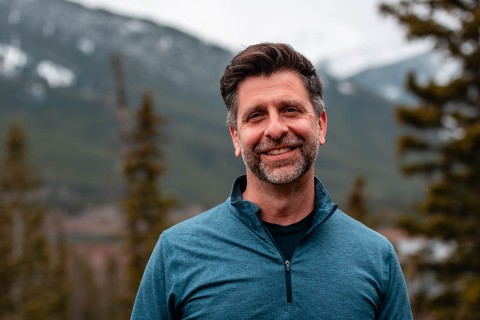In 2002, the Alberta body that regulates energy agreed to let a power company build a new coal-fired power plant outside Edmonton, with one key environmental condition: the company would make good on a voluntary commitment to cut the plant's greenhouse gas (GHG) emissions in half.
At the time, the power company's voluntary commitment represented an uncommon display of corporate leadership and environmental responsibility. For the company, it simply made good business sense: the power sector believed that the province was set to unveil tough new climate change regulations, and since coal is a much higher-polluting energy source than alternatives such as natural gas, the company could undercut objections to using coal by promising to reduce the plant's net emissions (through purchasing offsets) to a level comparable to natural gas power generation. This solution removed one of the obvious reasons to block the use of a high-polluting source of energy, while positioning the company as a leader in the industry — it seemed like a win-win.
Fast forward almost a decade: now the company, called Capital Power, is asking Alberta Environment to scrap the offset requirement because it's actually more ambitious than the current government standards. Parties opposed to the amendment have until Friday, July 23 to register their statements with Alberta Environment, which sets the criteria for the company's offsets. Some groups — including oil and gas heavyweight Encana, power generator Enmax, and various environmental groups, landowners and First Nations — have already filed objections with another regulatory group (the Alberta Utilities Commission) involved in the process. The regulators' job is to review these statements and decide if there's enough opposition to warrant a hearing.
Capital Power backtracks on commitment
Capital Power's about-face surprised members of the community and environmental groups, including Pembina, who participated in the initial process to see the coal plant's climate change impacts reduced. It's especially surprising given federal plans to phase-out existing coal plants across Canada when they reach the end of their lives, and to place tough limits on new facilities — limits that match or exceed the voluntary commitment that landed Capital Power the approval to build in the first place.
"Why would citizens participate in hearings in good faith if they knew that inconvenient approval conditions can simply be deleted from the government approval after the plant is operating?"
— Alberta landownerBut the new federal regulations will only apply to plants reaching the end of their economic lives (typically 45 years) or to those built after 2015. Because the Genesee 3 Capital Power plant was built recently, it won't be affected by the federal rules for many decades. And if it receives the amendment it's asking for, the plant will be allowed to scale-back its GHG pollution reductions to just two per cent (down from the original 50 per cent promised), growing to a maximum of 12 per cent in six years.
That's the standard set by Alberta's climate change pollution rules under the Specified Gas Emitters Regulation. In other words, the tough emissions rules the province was set to develop in the last ten years never materialized — so companies like Capital Power, who were looking to get ahead of the changes, have actually gone above and beyond the provincial standards.
Only, rather than leveraging that stance into a corporate model of environmental responsibility, Capital Power is now looking to avoid taking significant action to reduce its climate change impacts.
What's at stake
If the Utilities Commission and Alberta Environment allow Capital Power to walk away from the commitment it made voluntarily at the time of its approval, Alberta's GHG emissions will climb, and the cost of reducing those emissions will transfer from the company, to Canadians in general. What's more, allowing companies to renege on environmental commitments made at public hearings once projects are operating would be set a dangerous precedent and completely undermine the credibility of the Alberta approvals process.
"Why would citizens participate in hearings in good faith if they knew that inconvenient approval conditions can simply be deleted from the government approval after the plant is operating?" asked Ruth Yanor, a landowner who participated in the initial round of consultations, after hearing about Capital Power's requested amendment.
It's an important question to consider. Should a company's environmental compliance cost be lowered at the expense of public trust and environmental protection — especially when it's a company that represents a higher-polluting form of energy generation compared to alternatives in the market? Other industry players, notably Encana and Enmax, are directly opposing Capital Power's bid to remove the offset requirement.
 Since any future coal plants in Canada will be required to meet the standard Capital Power voluntarily committed to, and the only other new coal plant in Canada (TransAlta's Keephills 3 plant, now under construction) has the same approval condition, it is only fair that they should have to continue performing at that standard. Capital Power's attempt to renege on its climate commitment is doubly disappointing: both because it points a spotlight on the weakness of Alberta's climate regulations, and because it shows that the coal power industry was prepared to be regulated more than a decade before the federal government finally followed through.
Since any future coal plants in Canada will be required to meet the standard Capital Power voluntarily committed to, and the only other new coal plant in Canada (TransAlta's Keephills 3 plant, now under construction) has the same approval condition, it is only fair that they should have to continue performing at that standard. Capital Power's attempt to renege on its climate commitment is doubly disappointing: both because it points a spotlight on the weakness of Alberta's climate regulations, and because it shows that the coal power industry was prepared to be regulated more than a decade before the federal government finally followed through.
At the time, Captial Power's original voluntary commitment sent a clear message about the role industry can play — when it chooses to — in demonstrating and driving responsible environmental management. Alberta's regulators must echo that message today, by upholding Capital Power's commitment in the current review process.






